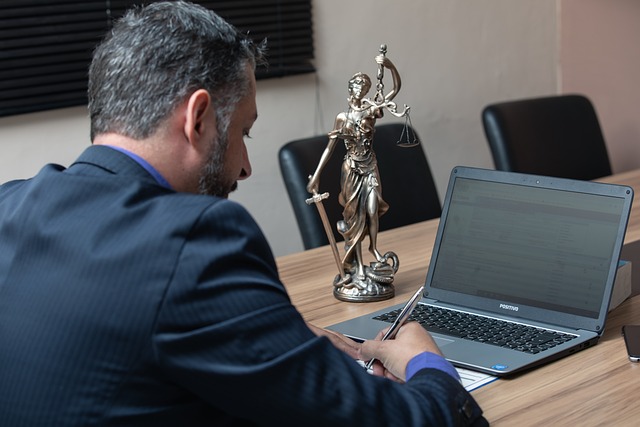Understanding common securities scams is vital for protecting yourself from fraudulent investments and safeguarding financial interests. Recognize red flags like high-pressure sales, guaranteed returns, and too-good-to-be-true offers. Legitimate investments carry risks, so transparency in strategies is key; reputable advisors explain potential risks, fees, and allocations clearly. Document misrepresentation evidence (emails, statements) for investigations and legal action against perpetrators. Consult legal experts in financial crimes for navigating complex securities laws and developing winning defense strategies. Engage specialized criminal appeals counsel to review the case, challenge evidence, witness testimonies, and procedural errors, aiming to overturn unjust convictions.
Securities scams are prevalent, posing significant risks to investors. This article guides you through essential steps to protect yourself and recover losses. Learn to recognize common red flags that signal fraudulent schemes, understand your investment rights, and gather evidence of misrepresentation. If convicted wrongfully, consult legal experts in financial crimes and follow detailed procedures to navigate the appeals process. By taking these steps, you can work towards overturning a wrongful conviction and securing justice.
- Recognize Common Securities Scam Red Flags
- Understand Your Investment Rights and Protections
- Document and Collect Evidence of Misrepresentation
- Consult with Legal Experts in Financial Crimes
- Navigating Appeals Process for Wrongful Conviction Reversal
Recognize Common Securities Scam Red Flags

When it comes to recognizing common securities scams, there are several red flags that investors should be vigilant about. One of the first steps in protecting yourself is to be aware of high-pressure sales tactics or promises of guaranteed returns, which are frequent indicators of fraudulent schemes. Be skeptical of investment opportunities that seem too good to be true, as these may involve manipulating or misleading information. It’s crucial to remember that legitimate investments carry risks and do not offer risk-free returns.
Another critical sign is the lack of transparency in how the money is invested. Reputable financial advisors should provide clear explanations of potential risks, fees, and where your investment will be allocated. Be wary if there are sudden changes in investment strategies or if you receive pressure to act quickly without proper due diligence. Understanding these red flags can help investors take proactive steps to overturn a wrongful conviction by making informed decisions, especially when navigating complex financial matters within the white collar and economic crimes realm. This awareness is crucial for both personal financial security and engaging with philanthropic and political communities.
Understand Your Investment Rights and Protections

Understanding your investment rights is a crucial step in protecting yourself from potential scams. Every investor has certain protections and privileges guaranteed by law. Familiarize yourself with regulations governing the securities industry, such as those set forth by the Securities and Exchange Commission (SEC). These laws are designed to safeguard investors from fraudulent activities and unfair practices. By knowing your rights, you can better identify and report suspicious behavior, helping to prevent losses in high-stakes cases and achieving extraordinary results.
The journey to upholding these protections involves proactive measures. Stay informed about common investment scams and fraudulent schemes by staying abreast of industry news and updates. Keep a critical eye on investment opportunities, especially those that seem too good to be true. If you suspect wrongdoing, document your findings and report it to the appropriate authorities. Remember, taking these steps can make a significant difference in overturning wrongful convictions and avoiding indictment in securities-related matters.
Document and Collect Evidence of Misrepresentation

When it comes to exposing securities scams, one crucial step is to document and collect evidence of misrepresentation. This involves meticulously recording any false or misleading statements made by individuals or entities involved in the fraudulent activity. It’s essential to gather not just written records but also any digital traces, such as emails, messages, and online communications. These documents can serve as powerful tools during the investigative and enforcement process.
By preserving this evidence, victims and authorities alike can navigate the complexities of a securities scam with greater clarity. The process may seem daunting, but it’s a vital step in overturning a wrongful conviction or pursuing legal action against perpetrators. It’s worth noting that an unprecedented track record of successful cases often hinges on the quality and quantity of evidence presented at all stages of the general criminal defense strategy.
Consult with Legal Experts in Financial Crimes

In any securities scam investigation, one of the first and most crucial steps is to consult with legal experts in financial crimes. These specialists can provide invaluable insights into navigating complex legal landscapes and understanding the nuances of securities laws. They play a pivotal role in developing a winning challenging defense verdict strategy, especially in high-stakes cases where every detail matters.
By engaging experienced general criminal defense attorneys, individuals or entities facing securities charges can better assess their options and take proactive steps to overturn a wrongful conviction. These experts have the knowledge and resources to challenge the prosecution’s case, expose loopholes, and present compelling arguments that could lead to not-guilty verdicts. Their goal is to ensure fairness and protect the rights of those accused in these intricate financial matters.
Navigating Appeals Process for Wrongful Conviction Reversal

Navigating the appeals process for a wrongful conviction reversal involves careful steps. If an individual believes they have been wrongfully convicted, the first step is to consult with legal counsel specializing in criminal appeals. They will review the case, ensuring that all potential issues are identified and well-documented. This includes examining evidence, witness testimonies, and procedural errors at all stages of the investigative and enforcement process, from initial police investigations to jury trials.
The appeal process itself comprises multiple layers, each with specific deadlines and requirements. Legal experts will prepare a robust appeal, detailing why the conviction was unjust. They may challenge the admissibility of evidence, argue against procedural mistakes, or present new exculpatory evidence, including those related to white-collar and economic crimes. Through meticulous research and strategic arguments, they aim to overturn the wrongful conviction, ensuring justice is served.
In exposing securities scams, recognizing red flags, understanding your rights, documenting evidence, and consulting legal experts are crucial steps. If you’ve been wrongfully convicted in such a case, don’t despair; knowing the appeals process is the first step towards overturning it. By following these guidelines and taking proactive measures, individuals can protect themselves and seek justice in the face of financial crimes. Remember, staying informed and vigilant is key to safeguarding your investments and ensuring fairness in the legal system.






